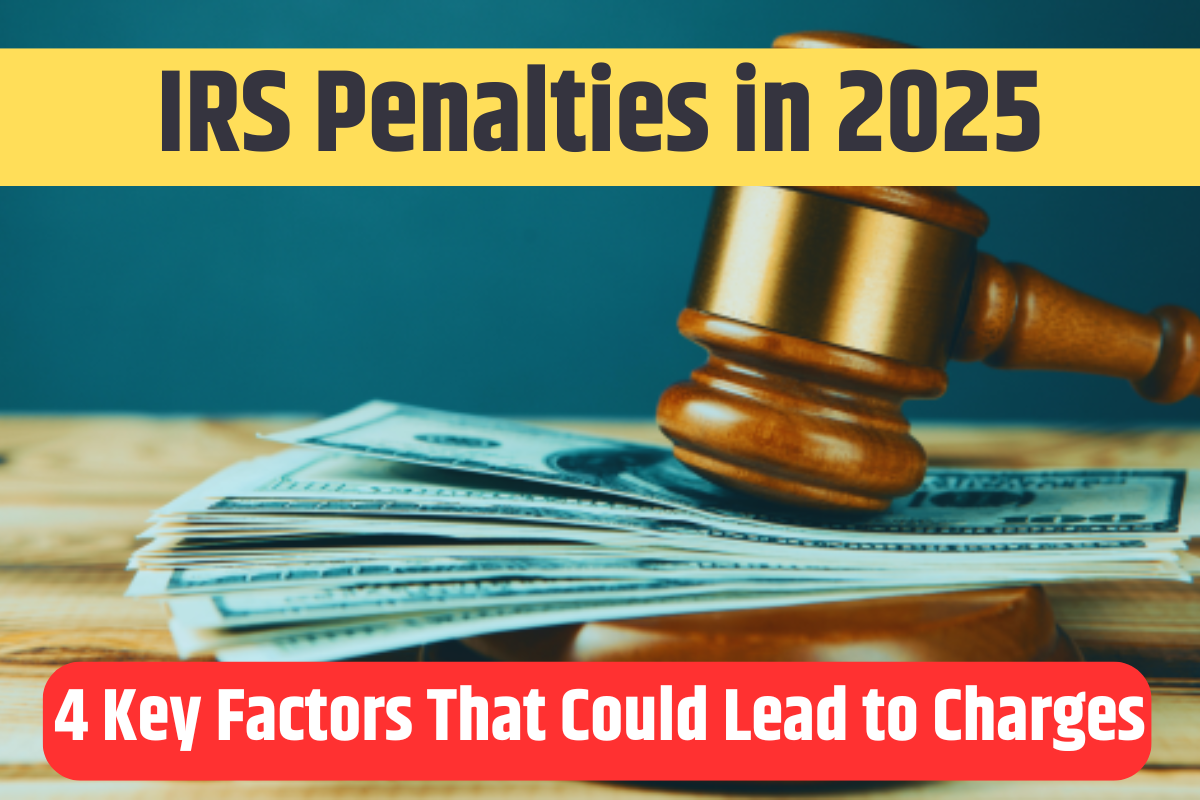The Internal Revenue Service (IRS) imposes penalties on taxpayers who fail to meet their tax obligations. Understanding these penalties and how to avoid them can save you time, stress, and money. Here are the four main reasons why you might owe the IRS a penalty and what you can do to prevent it.
1. Filing Your Tax Return Late
One of the most common reasons taxpayers face penalties is failing to file their tax return on time. The IRS allows taxpayers to file their 2024 returns between January 27, 2025, and April 15, 2025. Missing this deadline can result in a Failure to File penalty, which grows over time.
If you need additional time, you can file for an extension. However, keep in mind that an extension only provides more time to file, not more time to pay. You must still estimate and pay your taxes by April 15 to avoid penalties and interest.
2. Failing to Pay Taxes on Time
Even if you file your return on time, failing to pay your tax balance by the deadline can trigger a Failure to Pay penalty. This penalty accrues interest over time, making it more expensive the longer you delay. To avoid this, ensure you pay at least a portion of your taxes by the due date. The IRS offers several payment plans to help those struggling to pay in full.
3. Filing an Inaccurate Tax Return
Another reason the IRS may impose a penalty is filing an inaccurate tax return. This includes errors in reporting income, claiming incorrect deductions, or miscalculating your tax liability. The Accuracy-Related Penalty applies if mistakes result in an underpayment of taxes.
To avoid this, consider using tax preparation software or hiring a professional tax preparer. These tools can help ensure accuracy and minimize errors that could lead to penalties.
4. Failing to Submit Required Information Returns
Some taxpayers and businesses must file additional informational forms, such as 1099s, W-2s, or international tax documents. Failing to file these correctly and on time can result in penalties. If you’re unsure whether you need to submit additional forms, consulting with a tax professional can help prevent costly mistakes.
How to Avoid IRS Penalties
To steer clear of penalties, taxpayers should:
- File accurate tax returns on time
- Pay any owed taxes by the deadline
- Submit required information returns promptly
- Use reliable tax preparation methods or consult a tax professional
If you need additional time to file, you can request an extension at the IRS website: IRS Extension Request
Frequently Asked Questions (FAQs)
1. What happens if I file for an extension but don’t pay my taxes by April 15?
You will likely face a Failure to Pay penalty. The IRS recommends paying at least a portion of your owed taxes to reduce penalties and interest.
2. How much is the penalty for filing my taxes late?
The Failure to File penalty is 5% of unpaid taxes per month, up to a maximum of 25%. If your return is more than 60 days late, the minimum penalty is $485 or 100% of the unpaid tax, whichever is smaller.
3. Can I negotiate with the IRS to reduce or remove penalties?
Yes. The IRS offers penalty abatement for reasonable causes, such as a medical emergency or a natural disaster. You can request relief through the First-Time Penalty Abatement program if you have a clean tax history.
4. What should I do if I can’t afford to pay my taxes?
The IRS offers payment plans, including installment agreements and offers in compromise. These options allow you to settle your tax debt over time based on your financial situation.
5. How do I avoid errors on my tax return?
Using IRS-approved tax software, double-checking all information, and keeping proper records can help reduce errors. If unsure, hiring a tax professional can ensure accuracy and compliance.
By staying informed and proactive, you can avoid IRS penalties and make tax season a smoother process. If you need help, the IRS provides resources to guide taxpayers through filing and payment options.




